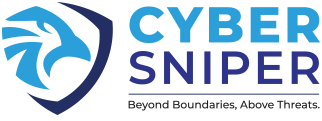In today’s digital age, cybersecurity is more critical than ever. As cyber threats continue to evolve, protecting sensitive information and maintaining secure access to systems has become paramount for businesses and individuals alike. One of the most effective ways to enhance security is through Multi-Factor Authentication (MFA). This method provides an additional layer of protection beyond traditional passwords, significantly reducing the risk of unauthorized access.
What is Multi-Factor Authentication?
Multi-Factor Authentication (MFA) is a security process that requires users to provide two or more verification factors to gain access to a resource, such as an application, online account, or VPN. Instead of just asking for a username and password, MFA requires additional credentials, which can include:
- Something you know: A password or PIN.
- Something you have: A smartphone, hardware token, or smart card.
- Something you are: Biometrics like fingerprints, facial recognition, or voice recognition.
By combining these factors, MFA makes it much more difficult for attackers to gain unauthorized access, even if they have obtained one of the factors, such as a password.
Why is MFA Important in Modern Cybersecurity?
- Enhanced Security: The primary benefit of MFA is the significant enhancement of security. Passwords alone are often not enough to protect against sophisticated attacks such as phishing, brute force, or social engineering. MFA adds additional layers of defense, making it more challenging for attackers to breach systems.
- Protection Against Identity Theft: With the rise of identity theft, MFA plays a crucial role in protecting personal and business information. Even if cybercriminals manage to steal login credentials, the additional authentication factor helps prevent them from accessing sensitive data.
- Compliance with Regulations: Many industries are subject to regulatory requirements that mandate the use of MFA. Implementing MFA helps organizations comply with standards such as GDPR, HIPAA, and PCI-DSS, avoiding potential fines and legal issues.
- User Convenience and Flexibility: Modern MFA solutions are designed to be user-friendly. For instance, biometric authentication (fingerprint or facial recognition) provides a seamless user experience while maintaining high security levels. Additionally, MFA can be integrated with single sign-on (SSO) solutions, allowing users to access multiple applications with a single set of credentials securely.
Implementing MFA with the Best Cloud Security Companies
To effectively implement MFA, many organizations turn to the best cloud security companies. These companies offer robust MFA solutions as part of their comprehensive security suites, ensuring that businesses can protect their data and systems without compromising on usability.
Key Considerations When Choosing a Cloud Security Company:
- Scalability: Ensure that the MFA solution can scale with your organization’s growth and can accommodate an increasing number of users and devices.
- Integration: The solution should seamlessly integrate with existing systems and applications, providing a smooth implementation process.
- Support and Maintenance: Opt for a provider that offers excellent support and regular updates to keep the MFA system secure and up-to-date.
Some of the Best Cloud Security Companies offering MFA solutions include Microsoft Azure, AWS, and Google Cloud. These companies provide robust and scalable MFA options that integrate well with a wide range of applications and services, ensuring comprehensive protection for their clients.
Multi-Factor Authentication is an essential component of modern cybersecurity strategies. By requiring multiple forms of verification, MFA significantly reduces the risk of unauthorized access and protects against various cyber threats. Partnering with the best cloud security companies can help organizations effectively implement MFA and ensure their data and systems remain secure. As cyber threats continue to evolve, adopting MFA is a proactive step towards safeguarding sensitive information and maintaining robust security in the digital age.
For businesses seeking to enhance their cybersecurity posture, considering the solutions provided by the best cloud security companies is a wise investment. Their expertise and advanced MFA offerings can provide the necessary protection to navigate the complexities of today’s cyber threat landscape.

